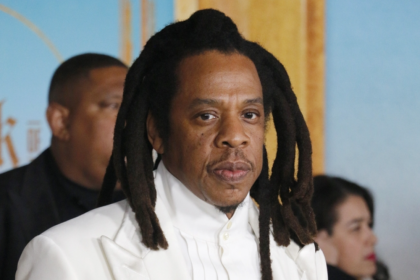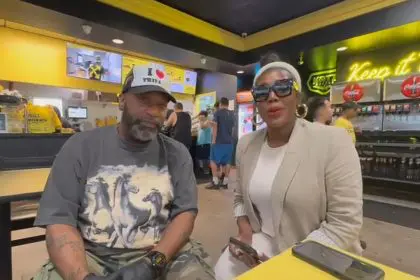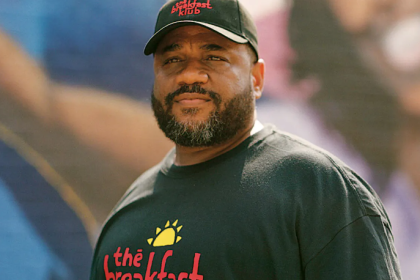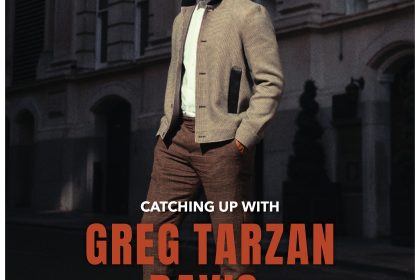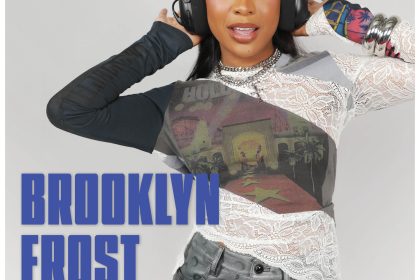how soulja boy Broke All the Rules …
And Won
Soulja Boy in the studio
|
Story by Jacinta Howard Once upon a time there was a boy named DeAndre Way. His friends called him Soulja Boy. He made a Web page, recorded himself dancing on YouTube and became one of the biggest stars on the planet. Some people loved him. Some people hated him. But everyone agreed that things would never be the same. This is his tale.
Two years ago, before Ice-T had a verbal squabble with him and white kids in Idaho went ape over “Crank That (Soulja Boy),” Soulja Boy was already a legend among the teenybopper set. Using his MySpace page and YouTube videos, the 16-year-old kid literally gained millions of fans from the basement of his Batesville, Miss., home. Sometimes, he would go as far as pretending his songs were new Eminem and 50 Cent tracks to draw viewers. And it worked. “I was getting $10,000 a show before I [was] signed,” says the now 18-year-old rapper. “I got caught with $60,000 in my backpack at school … it wasn’t a good look.” Soulja Boy chuckles, almost oblivious to the implication of his statement. The thing is; he’s not exaggerating. His nonchalant braggadocio doesn’t stem from albums shipped (not sold), or how much money he hopes to make in the future. His confidence comes from cold, hard facts. “People saw him every day on the [Internet] doing his thing,” says Miami Mike, his manager. “To be real, that was better than TV for us, because they could see him 24/7 just by typing his name. At the end of the day [Soulja Boy] changed the game. He’s a beast.” To date, “Crank That (Soulja Boy),” a song that he produced, has spawned a pair of videos that were streamed over 40 million times on YouTube, generated over 27 million views of his MySpace page and racked up digital track sales topping three million. As of 2008, the song had sold over two million ringtones, according to Nielsen RingScan.
“Marketing tactics changed because he was so self-sufficient,” says Maurice “Moetown” Lee, who worked directly with Soulja Boy at the beginning of his career as a promoter-marketer for Interscope. Lee personally traveled with Soulja Boy when the teenager was first signed to the label. “You can come up with a way to market him and promote him, and the minute you do that, he finds another way to promote himself.” Radio personality and DJ, Greg Street, who was instrumental in Soulja’s early success as one of the first national DJs to break “Crank That” on urban radio, recognized the young performer’s appeal early on. Street says that it was only a matter of time before the rest of the world caught on to what the youngsters already knew. “The kids loved him,” Street says. “Seven, eight million kids knew who he was [because of MySpace and YouTube] before anybody over 21 knew who he was.” Once the rest of the world caught on, well, it was a wrap. Football players did the “Superman” after touchdowns, kids started making their own YouTube versions of the dance and radio went crazy with the song. But while a large part of the country celebrated the “Crank That” craze, another sector, namely hip-hop heads, shunned it. From one-hit wonder accusationss, to claims that Soulja Boy was responsible for single-handedly destroying hip-hop, the youngster quickly became the most polarizing figure in urban music this side of R. Kelly. “I had beef with a lot of different artists; a lot of artists had different opinions about my music,” Soulja Boy shrugs. “But at the end of the day, it’s going to take a whole lot to stop me.” At times he played in to the criticism, with his loose tongue and what seemed to be disrespect for hip-hop pioneers. Then there was the coonish video “Yahhh!” which featured a dancing animated character and an unintelligible chorus. Still, some people shrugged off his controversial acts and comments, blaming it on his immaturity. “At times you’d have to remember that he’s a kid and pull the reigns back on him a little because he’ll jump out there,” says Lee, who helped groom him for radio and media appearances while they were on the road. “He does some things that the label definitely had to get out there and erase real quick — like hanging off a hotel balcony. It was [not] his [fault] … [Interscope] just took him from in front of a computer and put him on the road. He [was just] being a little kid and joking around, so sometimes the adults that were interviewing him would take offense, even though he was joking. You’d have to squeeze him on the side, like ‘Yo, you can’t do that.’ He didn’t understand that at first, but as it went along he got it.” As for Soulja Boy, he’s claimed publicly that journalists have misconstrued his words — like Touré, who blasted him for his infamous “Shout out to the slave masters! Without them we’d still be in Africa,” comments, which understandably ignited a wave of fury. “It’s all about hard work and determination with whatever you’re doing in your life,” says Soulja, who later apologized for his inflammatory statements. “Whether it’s rapping, acting, working in McDonald’s, going to school and trying to get your degree, you’re always going to face different chapters. Haters are gonna come with whatever you’re doing.” Indeed, his detractors didn’t expect him to be anything more than a one-hit wonder, a short-lived Internet phenomenon much like Tay Zonday of “Chocolate Rain” fame. But, with his sophomore effort, iSouljaBoyTellem, he effectively silenced the naysayers. Two of his songs, “Kiss Me Thru the Phone” and “Turn My Swag On” have simultaneously charted on the Billboard Top 10. And even listeners who were ambivalent about him have found themselves reluctantly admitting that maybe the kid has something after all. “I think Soulja Boy really came up with his own music business model,” says Byron Wright, associate director of writing and publishing for BMI, the company that handles Soulja’s publishing. Wright has worked with Soulja directly throughout his career. “He used the Internet as his tool to succeed. He forced people to want know what he was about.” For Soulja, it was a pretty normal use of technology. “… It’s just like the next level of the music industry,” says the rapper, who grew up in west Atlanta before moving to Mississippi for high school. “I just always try to stay like, a couple of steps ahead of the game, so I had that on lock way back then. Now I got rappers just now catching on to it, doing blogs and stuff like that. But I’m three steps ahead of them.”
“Before the labels would give the audience a record,” Lee says. “Now they’ve had to go back to communicating with the fans to see what they want.” Soulja Boy’s self-taught business savvy has made his clothing line, Yums, a success and has industry insiders marveling at his ingenious marketing tactics. “He used MySpace as a weapon,” says Miami Mike, mentioning he was already opening up for crowds of 30,000 before his deal. “He used to have his MySpace URL in all of his songs, as well as his Web site. He would have everyone in the crowd repeat his MySpace page two or three times before his show was over and the same with his YouTube.” Greg Street says labels would do well to take note. “For him to be able to do [all of this] on his own with no education — there’s something there that’s bigger than music that people aren’t paying attention to,” he reasons, noting his clothing line, shoes, video games and upcoming movie roles. “All of these rappers that think they’re not one-hit wonders need to be trying to hire him to market their s—.” With the one-hit wonder jinx officially behind him and his brand stronger than ever, the options are limitless for the mini-mogul. Insiders maintain that if he can keep his image untarnished by making age-appropriate songs, he should be just fine. “He has to be careful and walk that line right because even though he has records like, ‘Turn My Swag On’ that the masses love, he’s still an artist that kids love,” Greg Street warns. Soulja, however, doesn’t seem too worried. He’s already on to his next marketing plan. No longer focused on just MySpace or YouTube, he’s already moving in a new direction. “My biggest advantage I would have to say, would be my phone number with this company I got called Say Now, and the phone number that you hear, 678-999-8212,” he says. “I got over 2.2 million subscribers that I can reach with one phone call. That’s how I leak songs out and that’s how I let my fans know what city I’m gonna be in so that my shows can be sold out.” Always one step ahead of the competition, Soulja Boy has proven himself to be more than a smart kid who lucked up on a couple of hit songs. Like it or not, his success is arguably indicative of the new music industry — and he knows it. “It’s unheard of, the way I broke into the music industry, I just really kicked down the doors at the record label and just ran in taking money,” Soulja says, with a grin. “Before I get out the game, I’m [going to] cause hell.” |



